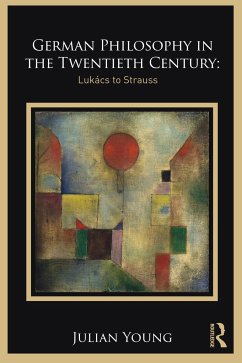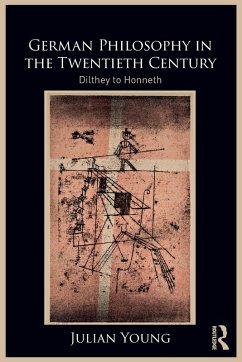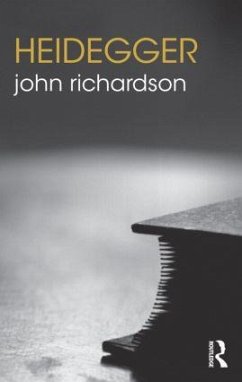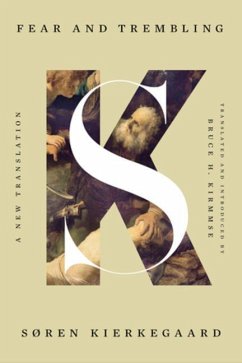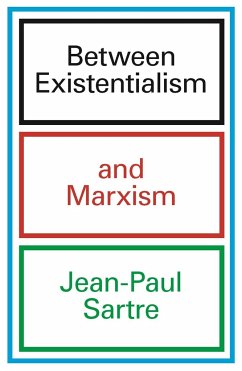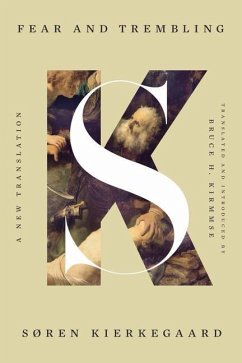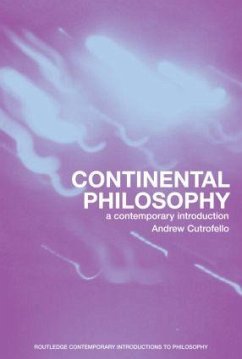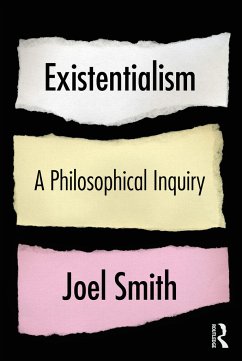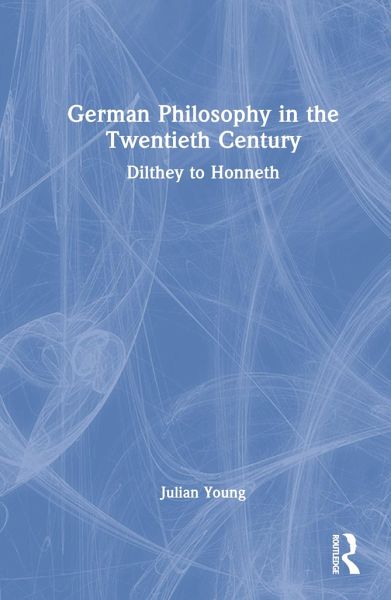
German Philosophy in the Twentieth Century
Dilthey to Honneth
Versandkostenfrei!
Versandfertig in 6-10 Tagen
154,99 €
inkl. MwSt.
Weitere Ausgaben:

PAYBACK Punkte
77 °P sammeln!
The path taken by German philosophy in the twentieth century is one of the most exciting and controversial in the history of human thought, by turns radical and conservative and secular and religious. In this outstanding introduction, German Philosophy in the Twentieth Century: Dilthey to Honneth-the third and final volume in his trilogy-Julian Young examines the work of eight German philosophers and theologians of the period. He discusses their engagement with the deepest existential questions, their critique of the rationalization and mechanization of modernity, and their commitment to varyi...
The path taken by German philosophy in the twentieth century is one of the most exciting and controversial in the history of human thought, by turns radical and conservative and secular and religious. In this outstanding introduction, German Philosophy in the Twentieth Century: Dilthey to Honneth-the third and final volume in his trilogy-Julian Young examines the work of eight German philosophers and theologians of the period. He discusses their engagement with the deepest existential questions, their critique of the rationalization and mechanization of modernity, and their commitment to varying forms of liberalism, socialism, and democracy.
Young introduces and assesses the thought of the following figures:
Wilhelm Dilthey: the need for 'worldviews', and the distinction between 'explanation' and 'understanding' as a bulwark against the reduction of human beings to scientific quantaKarl Jaspers: existentialism, the challenge of nihilism, andthe turn to theologyEdith Stein: the phenomenology of empathy, community versus society, and the turn to Catholicism Paul Tillich: philosophical theology and the 'theonomous' lifeMartin Buber: recovering the 'thou' in the face of modernity's reduction of everything to an 'it'; the kibbutz as the paradigm of a socialist communityHans Jonas: the mortal threat posed by the unknown consequences of modern technology and the ethics of responsibility for the planetErich Fromm: the 'art of loving' as a bulwark against hard and soft totalitarianism; the replacement of capitalism by communitarian socialismAxel Honneth: contemporary Hegelianism and the ethics and politics of recognition; the nature of real freedom.
Lucidly and engagingly written, German Philosophy in the Twentieth Century: Dilthey to Honneth is essential reading for students of German philosophy, phenomenology, and theology and will also be of interest to students in related fields such as literature, political theory, and sociology.
German Philosophy in the Twentieth Century: Weber to Heidegger (2018) and German Philosophy in the Twentieth Century: Lukács to Strauss (2020) are also available from Routledge.
Young introduces and assesses the thought of the following figures:
Wilhelm Dilthey: the need for 'worldviews', and the distinction between 'explanation' and 'understanding' as a bulwark against the reduction of human beings to scientific quantaKarl Jaspers: existentialism, the challenge of nihilism, andthe turn to theologyEdith Stein: the phenomenology of empathy, community versus society, and the turn to Catholicism Paul Tillich: philosophical theology and the 'theonomous' lifeMartin Buber: recovering the 'thou' in the face of modernity's reduction of everything to an 'it'; the kibbutz as the paradigm of a socialist communityHans Jonas: the mortal threat posed by the unknown consequences of modern technology and the ethics of responsibility for the planetErich Fromm: the 'art of loving' as a bulwark against hard and soft totalitarianism; the replacement of capitalism by communitarian socialismAxel Honneth: contemporary Hegelianism and the ethics and politics of recognition; the nature of real freedom.
Lucidly and engagingly written, German Philosophy in the Twentieth Century: Dilthey to Honneth is essential reading for students of German philosophy, phenomenology, and theology and will also be of interest to students in related fields such as literature, political theory, and sociology.
German Philosophy in the Twentieth Century: Weber to Heidegger (2018) and German Philosophy in the Twentieth Century: Lukács to Strauss (2020) are also available from Routledge.




